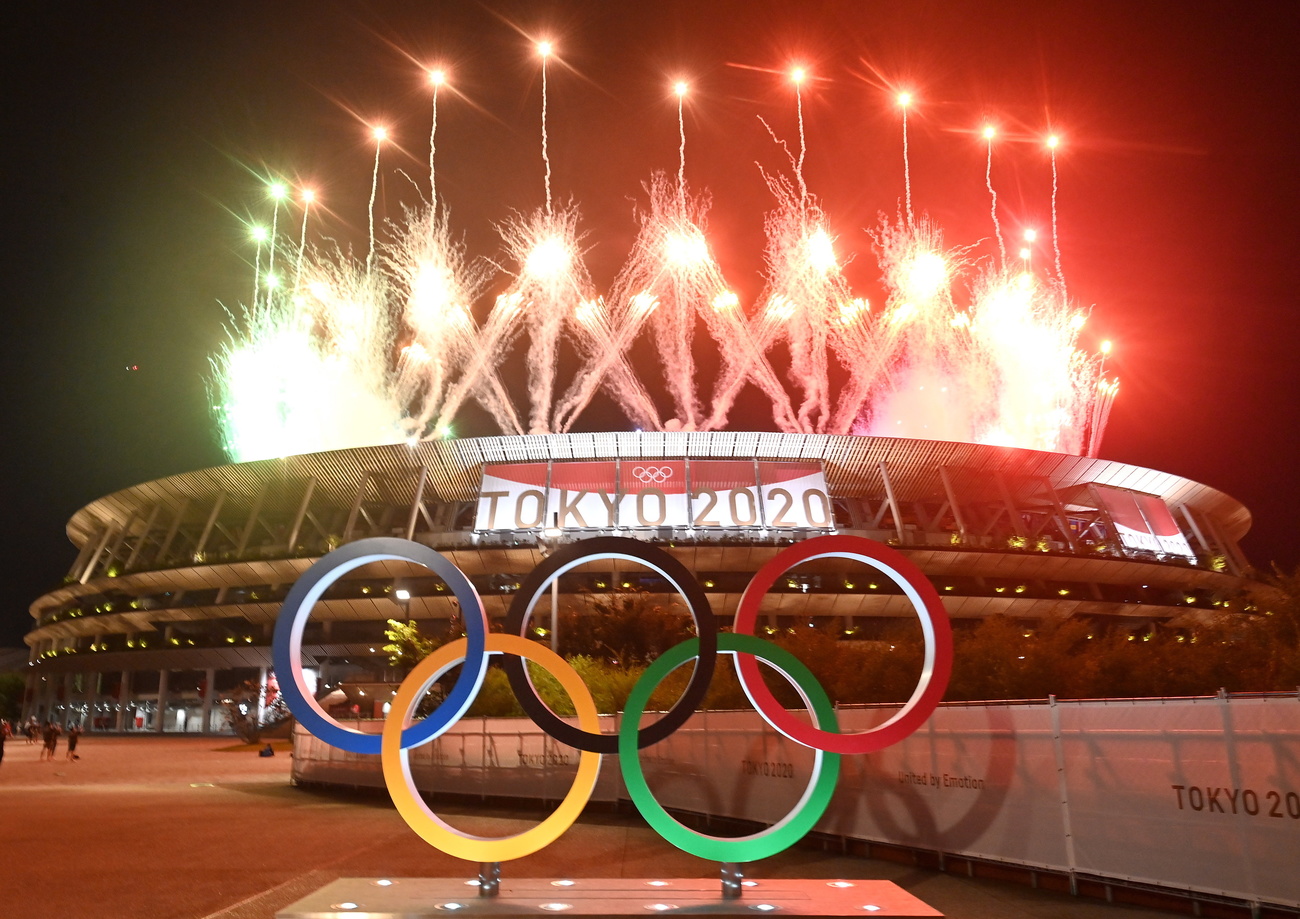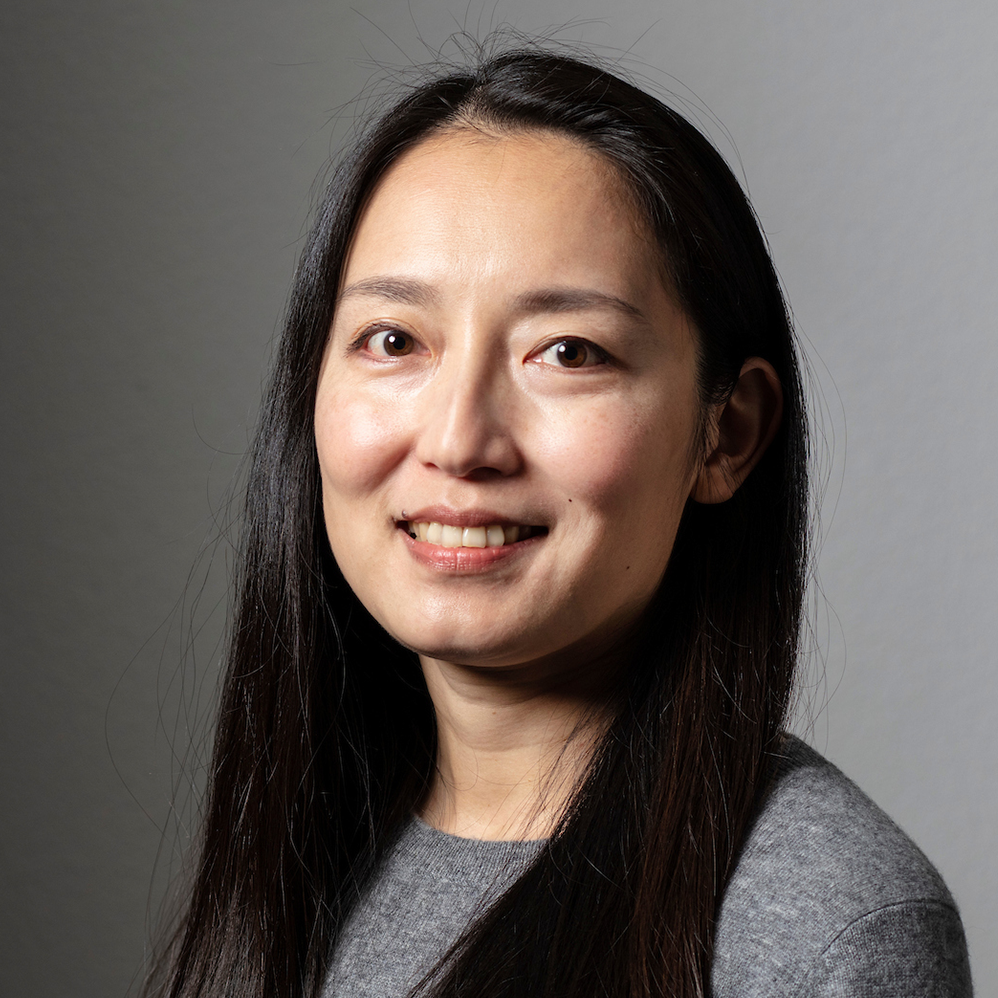
Do athletes have to choose between university and stadium?

A third of the Swiss athletes who participated in the Tokyo 2020 Olympic Games were students or university graduates. Outside the stadium, they are “normal” students who have to juggle lectures and high-performance sports training.
According to a new study, “Elite Sport in Switzerland 2019”, 47% of athletes aged between 25 and 34 have a tertiary educational qualification (either from a university or a vocational college). That is 5 percentage points lower than the rest of the population in the same age group. But it’s still quite a high figure, says Simon Niepmann, a former rowing champion who heads the programme “Elite Sport and Studies” for Swiss Olympic, the umbrella organisation for Swiss sport. An Olympic gold medal-winner himself, he managed to successfully complete his studies in sport and geography at Basel University, obtaining a bachelor’s degree in five years instead of three.
As its name suggests, the support programme he leads aims to allow athletes to engage in a double career. Within the framework of the programme launched in 2014, a network of 42 people is responsible for helping athletes to reconcile the demands of competitive sports with their studies. These contact people are spread across almost all Swiss universities and help athletes plan their education and their sporting careers years in advance.
In 2014, Swiss Olympic launched the “Elite Sport and Studies” project in collaboration with Swiss University Sports – the umbrella organisation of university sports clubs. The project became a programme in 2017 and has been affiliated with Swiss Olympic since 2018. Swiss Olympic and Swiss University Sports maintain close cooperation on this issue.
Swiss Olympic and swissuniversities – the conference of rectors at Swiss universities – signed a declaration in 2017. Their main objectives are to promote part-time studies as an option, lengthen courses, and reduce attendance obligations for competitive athletes.
In 2020, the two organisations signed a second declaration, adding the option of a remote apprenticeship independent of time and place, which worked well with study conditions imposed by Covid.
SWI swissinfo.ch: Why was there almost no organised support in Switzerland for student athletes until a few years ago?
Simon Niepmann: In the past, student athletes were extremely autonomous. During my studies I noticed that in Switzerland, no difference was made between students who were engaged in elite sports, those that practised a hobby or those that had a job alongside their course. All were considered as part-time occupations. It was completely up to the athletes to organise the time necessary to train for their sport alongside their studies.
In Switzerland, sport is now increasingly considered as a full-time professional activity, even if its status is not yet comparable with that in other countries, where being an athlete is considered a profession like any other.
SWI: What is the question you most often get asked by young athletes?
S.N.: The most common question is: “I do sport on a high national or international level. What kind of diploma course is an option for me?”
Of course, I can’t give a general answer, such as all athletes can study business or law. I have to examine each case individually. That depends on what field of study the athletes are interested in, the demands of their sport, but also the place where they train and the flexibility offered by the relevant university.

More
‘The best advice is to seek help’
SWI: What is the main support you can offer to student athletes?
S.N.: Advance planning. This means starting to combine competitive sports with studies very early on. You have to, for example, identify the phases where the studies will demand a lot of time and the phases of intensive training.
The ideal would be to plan a timetable right up to obtaining a diploma – the planning can be readjusted every six months.
Our main task is to make athletes aware that they must plan and that there are different people who can help them on their two-track route.
SWI: An analysis of the Swiss Olympic study in 2018 shows that student athletes at the top of their game are rarely registered as sportsmen or women when they are admitted to university.
S.N.: We are facing two issues. On the one hand, we don’t have access to information about all the athletes regarding their education; on the other, universities don’t always know which students are involved in competitive sports. We have a lot of scope for improvement in this area.
What we are trying to do is to keep competitive athletes informed, as often and as widely as possible, whether via newsletters, sports clubs, or other channels.
We have also noticed that there is often a desire for exchange between student athletes and younger athletes still at high school. If athletes talk to each other then there are fewer inhibitions about asking simple questions than if they talk to someone official at a university. We created an online platform to facilitate this exchange.
SWI: The 2020 declaration by Swiss Olympic and swissuniversities makes clear that not all sports are compatible with all educational courses. What combinations of sport and study are particularly difficult?
S.N.: I would be reluctant to say that a certain sport doesn’t work at all with a certain university subject, because it’s always important to take into account that it is a very personal choice.
But we notice that winter sports athletes have a tendency to study remotely. The fact is they are on the road all season and therefore can’t attend a course regularly in person.
In terms of subjects, the most difficult for athletes are certainly those where there is a high proportion of practical work or lessons in a laboratory where the students have to be in a certain place at a certain time.

More
‘Good planning is important’
SWI: The US and China have for a long time headed the league tables for the number of medals at the Olympic Games. In China, for example, competitive athletes have the option of focussing on sport and then obtaining favourable conditions for admission into a prestigious university. Are Swiss athletes disadvantaged in comparison with competitors in these countries because they are obliged to combine study and sport?
S.N.: We think that in a number of cases, it is useful for athletes to train in parallel to their studies. Partly because there are a number of hours in the day which are not taken up with sport and where athletes can do something else, and also because studies are a cognitive distraction that motivates athletes in a different way.
An environment outside the sporting world is also important to many athletes. This allows a change of rhythm and can be enriching and calming. Preparing for a post-sport career is also a very important point. When you stop practicing sport, it is essential to have a second field where you can invest your energy and develop.
SWI: How does Switzerland rank in a global comparison in terms of supporting student athletes?
S.N.: We prefer to compare ourselves with countries of a similar size. There are always different approaches. In Norway, sports associations collaborate with specific universities. So there you more-or-less know that if you are doing a certain sport, there is a university that cooperates with the national association or the Olympic committee.
With our network of coordinators in Switzerland, we want to show that athletes don’t have to limit their options. We prefer to try to keep all options open. It’s a process that we will continue to work on.
SWI: Is a double career in competitive sports and studies more a story of compromise, or that a win-win situation?
S.N.: It’s definitely a compromise because you can’t be 100% committed to sport and 100% committed to your studies at the same time. You have to plan and find a balance. Nevertheless, I wouldn’t say that devalues both aspects. Studying at the same time doesn’t necessarily mean less success in sport – it often even means the opposite.

More
Swiss celebrate most successful Olympics since 1952

In compliance with the JTI standards
More: SWI swissinfo.ch certified by the Journalism Trust Initiative































You can find an overview of ongoing debates with our journalists here . Please join us!
If you want to start a conversation about a topic raised in this article or want to report factual errors, email us at english@swissinfo.ch.